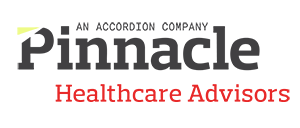 Now that the dust has settled, the LinkedIn connections finalized, and the minds expanded, let’s review our key thoughts from this year’s HFMA Western Region Symposium.
Now that the dust has settled, the LinkedIn connections finalized, and the minds expanded, let’s review our key thoughts from this year’s HFMA Western Region Symposium.
AI Continues to be at the Forefront
Stroll through the Vendor booths of the Symposium and you’ll notice that most are pedaling AI in some way, shape, or form. AI has been top of mind since ChatGPT took the world by storm in November 2022. Automation has been steadily knocking on Healthcare’s doors, with AI being predated by RPA (Robotic Process Automation) and RPA predated by Web scraping. The goal for healthcare executives seems clear – replace the repetitive “mindless” work with a bot and upskill your current Revenue Cycle Team. Nikki Harper (Division Chair of Revenue Cycle at Mayo Health) notably quipped that “the IT Departments of today will be the HR Departments of tomorrow.” In fact, the team at Mayo has committed to using AI in its follow-up capacity; with leaders being encouraged to learn how to build and manage these AI Bots. While Mayo Clinic is clearly a leader in its commitment to deploy AI in this manner, the industry continues to ready itself as payers have already begun incorporating, or incorporated, AI into their daily activities. With the writing on the wall, effective change management is especially needed to instill a leading practice Revenue Cycle. This would cover aspects from distilling RC employees’ fears on “AI is coming for your job” to managing leadership and other key stakeholders’ expectations for what results can be expected with an AI implementation. (For more AI insights, please reach out to Nicholas Fortman, Laszlo Tarjan, and Ehson Afshar.)
Medicare Advantage Polarizes
During the CFO panel, the topic that generated the most reaction was… Medicare Advantage. Should my hospital accept these plans? Is our facility large enough to offer a plan to our staff? Why is it called Medicare Advantage if it is neither Medicare nor an Advantage? Scripps’ CFO – Brett Tande – discussed the difficulty of having to stop offering the plan as it was not viable to break even for their 32K members. Insurers have been placing the “full-risk” with the facility and employing a “deny and delay” tactic that further exacerbates the issue. Washington is also paying attention to Medicare Advantage, with this (and price transparency) expected as a key topic to be addressed by year-end. As Medicare Advantage’s market share continues to rise (and is projected to do so well into the 2030s), with an estimated half of all organizations accepting these plans, some believe that it is now “too big to fail.” Denial prevention and mitigation strategies likely will continue to be a major topic in future Revenue Cycle sessions to come. (For more Medicare Advantage mitigation and management strategies, reach out to Marci Mollman, Vickie Bridge, and Leon Chang.)
Authentic Relationships Matter
The benefit of attending a symposium is not just in the ideas explored but also in the connections fostered. Leaders across all panels alluded to their successful business relationships which could be boiled down to authenticity and transparency. In discussing this, Brandon Burnett (Vice President of Revenue Cycle at Community Health System) mentioned that business partners were valued as much (if not more) for indicating that they were not the proper fit, rather than attempting to wedge themselves as a square peg into a round hole. Regina Berman and Andrew Jacobsen were able to depict their deep, successful, and authentic relationship that Adventist Health has had with Pinnacle Healthcare Advisors by noting how each step was driven by a review of data and the understanding of what assets (if any) PinnacleHCA and Adventist could deploy to assist. In navigating the space together, they were able to successfully see an improvement in metrics ranging from Total Escalations to Denied Dollars. (For more information on Authentic Relationships, reach out to Andrew Jacobsen, Todd Hakala, and Jim Martin.)



